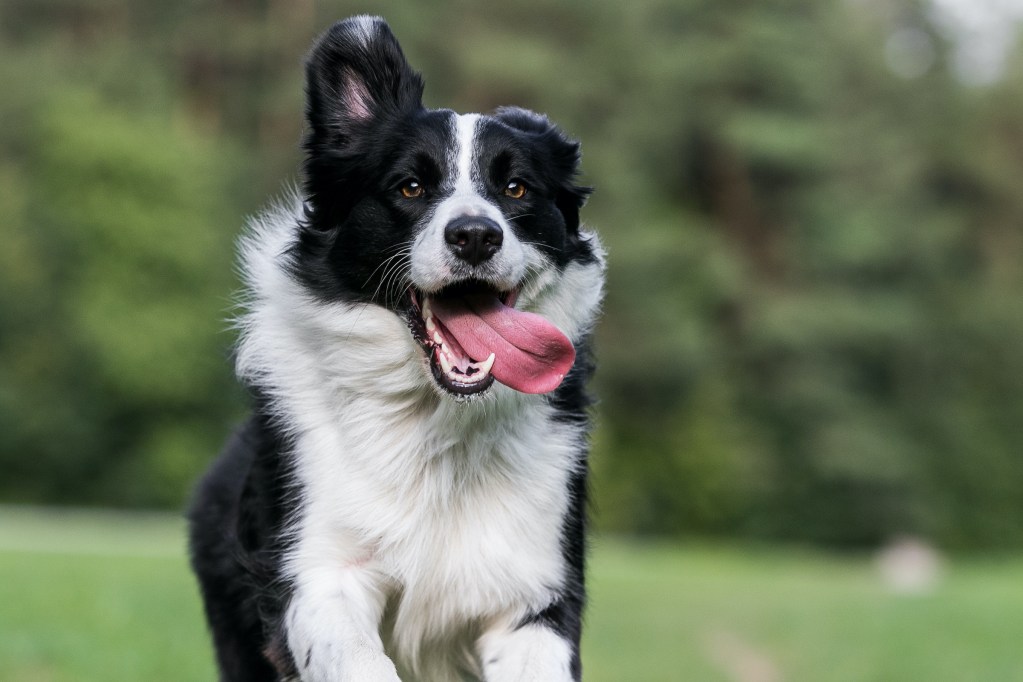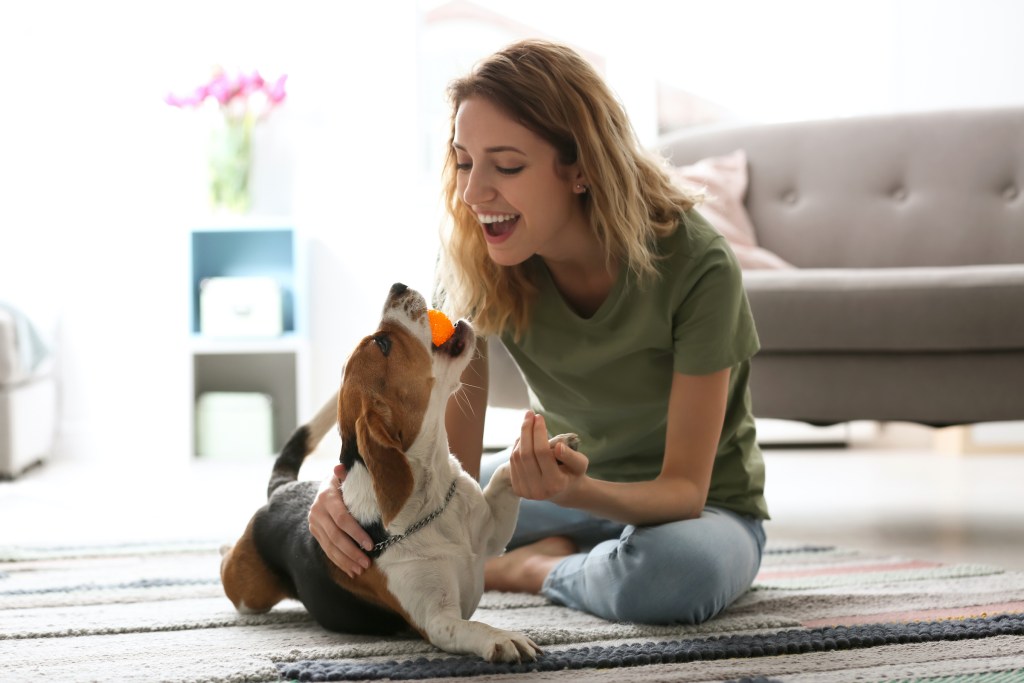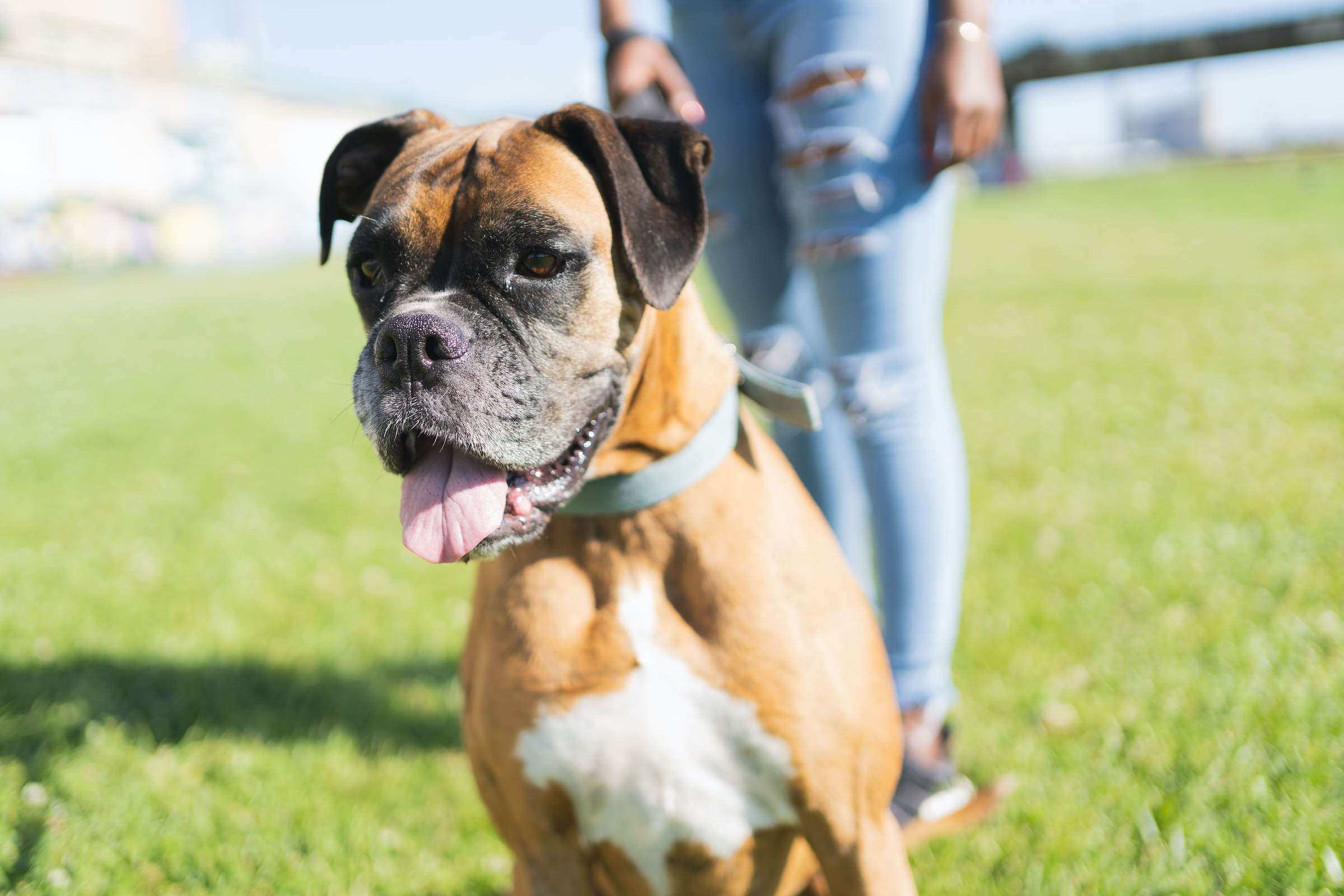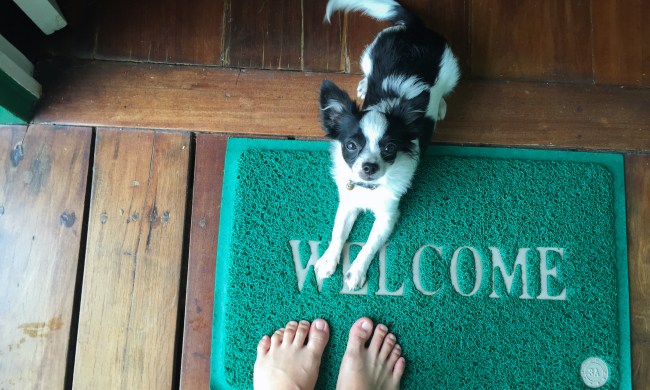Dogs are naturally quirky and crazy, that’s just a fact — but can hyperactivity be something more serious? Surprisingly, dogs can experience similar attention disorders as humans do, but not all pet parents even know this kind of condition exists. Still, a high-energy dog may not be clinically hyperactive, so it’s always a smart idea to do your research. Start here!
In this article, you’ll find everything you need to know about excess energy in dogs, including hyperactive dog symptoms, causes, and solutions. Then you’ll be able to take the next steps toward helping your buddy feel more calm and collected. Just think of how great that will feel!

What causes dogs to be hyper?
Even though a dog’s high energy level can seem abnormal in some cases, it’s often completely ordinary. There are several reasons why dogs may react to every sound, smell, and movement that catches their eyes, but most can be remedied with time, training, or the help of a veterinarian.
Age
Many puppies are little balls of energy, and that’s just how it is! Of course, you’ll meet fur babies who’d rather nap than play, but most pups have a lot of energy for a short period of time before needing to rest. Young dogs also don’t have the skills to exert their energy in healthy, non-destructive ways, which can lead to chewing, biting, and other unwanted behaviors.
Sometimes, this rough type of play helps puppies feel out new social settings, especially with their siblings. As long as no one gets hurt, it doesn’t need to be stopped. Luckily, these behaviors can be grown out of with a combination of time and training. Make sure your pup has plenty of exercise and toys, too!
Boredom and lack of stimulation
No matter what age a dog is, they can fall victim to hyperactivity if they don’t have other ways to exert all that energy. This is a normal situation and not necessarily a sign of hyperkinesis — an actual clinical condition.
To help your dog get all that energy out, make sure you’re stocked up with plenty of toys and treat-releasing puzzles. Regular exercise is also a key to solving many health and behavioral issues, so don’t hesitate to get your buddy up and out of the house at least once per day.
Breed characteristics
Many dogs — especially working, herding, and sporting breeds — enjoy having a job to do. This is because they were bred for difficult jobs in their ancestral homelands, but those instincts are active no matter where a dog lives today. City dogs may chase cars, while family dogs might herd small children. It never hurts to research your dog’s breed and instinctual jobs if you’re looking for new ways to stimulate your best friend.
Sex hormones
Sometimes, intact male and female dogs can become more driven by their sex drive, leading to obsessive or impulsive behaviors. This can become more intense when a female is in heat, whether your dog is the female or the male who becomes interested. The easiest way to decrease the likelihood of certain behaviors is to have dogs spayed or neutered once they’re old enough, though you should have a conversation with your veterinarian before deciding if this is the route for you.

Can dogs have something like ADHD?
If a vet or behaviorist can determine that none of the above are contributing to a dog’s hyperactivity (with the exception of breed), your fur baby may be diagnosed with hyperkinesis. This is essentially the canine version of ADHD and will generally result in a dog who reacts strongly to even the slightest of stimuli.
According to Dr. Karen Becker, a proactive and integrative wellness veterinarian, a dog with hyperkinesis will show clinical symptoms such as:
- Increased heart rate
- Reactivity
- Increased respiratory rate
- Poor physical health
- Agitation
Dogs diagnosed with true hyperkinesis tend to be three years of age or older. Although breed and activity level can be a factor, your vet will also need to rule out other conditions that show similar symptoms.
At what age do most dogs calm down?
Despite needing to be three years of age or older to be diagnosed with hyperkinesis, many dogs tend to start losing their puppy energy (or at least managing it in a more effective way) a lot sooner. Many puppies show the first signs of maturation between 6 to 12 months of age, though you’ll see the most noticeable changes once you’re out of puppyhood — between 1 to 2 years old!

How do you calm down a hyper dog?
The trick to calming down a dog with too much energy is understanding why your fur baby is hyperactive in the first place. For a puppy, it may just be a matter of time, while a dog who follows sexual drive might benefit from being spayed or neutered. When in doubt, you can never go wrong with giving your energetic buddy some more exercise — just remember to keep your pup hydrated and cool while you do.
If you’re unsure where to start, just talk to your vet! The cause of hyperactivity can be hard to spot at times, and there’s nothing wrong with asking for help. The sooner your pup can feel calmer, the better it will be for everyone.



